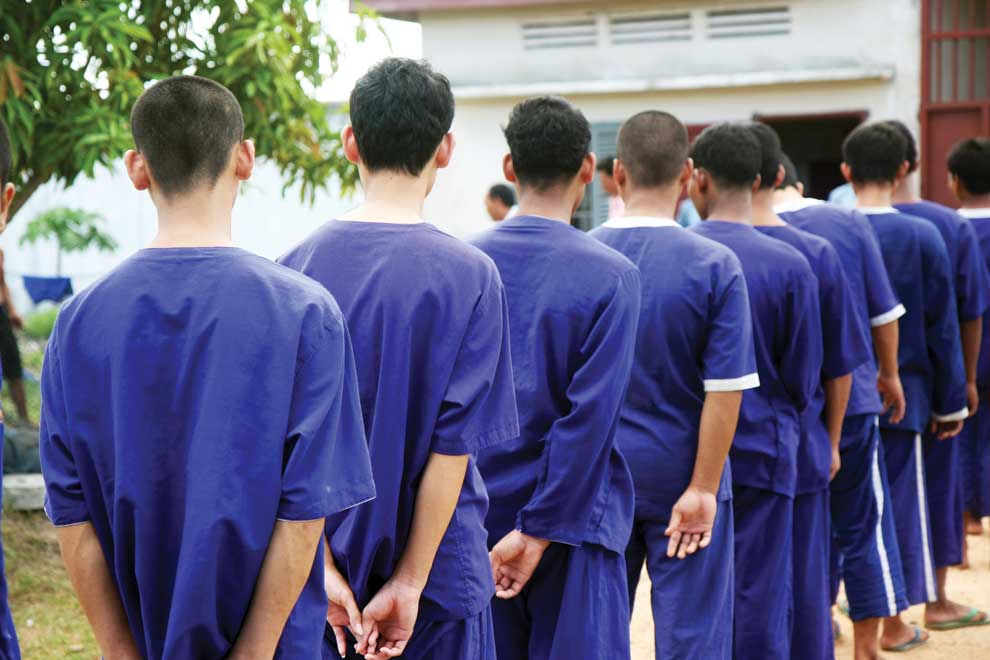
There are currently 31,000 inmates in Cambodia’s prisons. Photo supplied
The Ministry of Interior has established a task force to help speed up judicial procedures in an attempt to address overcrowding in prisons throughout the Kingdom.
Interior Minister Sar Kheng issued the directive on Tuesday. According to the ministry’s statement, the National Police chief, the head of the General Department of Prisons and other relevant institutions are tasked with implementing the directive.
“The obligation of this working group is to prepare and compile relevant documents to expedite judicial procedures of the court at all levels for speedy issuance of verdicts."
The directive names Sork Setha, Secretary of State at the Ministry of Interior, as head of the task force.
General Department of Prisons spokesman San Keo said there are currently 31,000 inmates, well over the prisons’ capacity. For instance, there are currently 7,000 prisoners in Phnom Penh’s Correctional Center 1, which is designed to hold only about 2,000 inmates.
Keo said the establishment of the taskforce coupled with the construction of more prisons throughout the Kingdom will help alleviate overcrowding.
“Authorities at ministerial and governmental levels have built new prisons using the government’s and [interior] ministry’s budget."
“Obviously, we have built some more prisons, such as the ones in Takeo and Kratie provinces and in two or three more [provinces]. Eight buildings have also been built at Correctional Centre 4,” he said.
Early this month, local NGO Lichado released a report detailing how the underuse of bail had resulted in excessively long periods of pre-trial detention and subsequent overcrowding.
Working in 18 of Cambodia’s 28 prisons, the report showed that 25,926 people are being held in the Kingdom’s jails, with 9,527 or 37 per cent in pre-trial detention.
The report, Time For Bail: Ending Needless Mass Detention, said the issue has far-reaching consequences on the lives of individuals, their family and communities.
It said imprisonment led to the stigmatisation of those held and caused a loss of income, leading to the breakdown of families. In some cases, defendants are found innocent but have nonetheless spent a long period of time behind bars.
The report requested that the courts use prison sentences appropriately and only as a last resort, while they should prioritise trials featuring defendants who were vulnerable, such as women and mothers with children.









